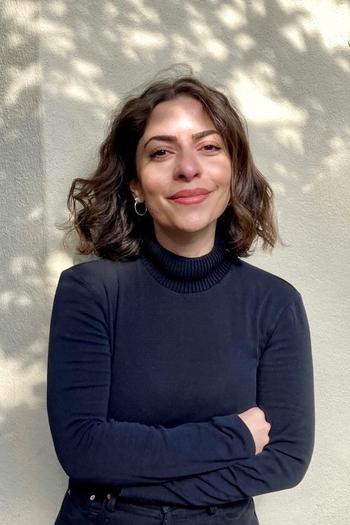Rosa Burç

Scuola Normale Superiore, SNS
INTERACT
Nachwuchsgruppe "Radical Politics"
Doctoral Research Fellow "Radical Spaces"
Altensteinstraße 48
14195 Berlin
Rosa Burç is a PhD researcher at the COSMOS Center on Social Movement Studies, which is part of Scuola Normale Superiore in Florence, Italy. She specialized in the political imaginaries of stateless mobilization, with a focus on the Kurdish Middle East and its diaspora. She is currently finalizing her dissertation.
After graduating from SOAS, University of London with a M.Sc. in International Politics, she has worked as a research fellow and has taught undergraduate courses at Bonn University’s Institute for Political Science and Sociology. Since 2021 she has been affiliated with the Hamburg Institute for Social Research as an external fellow and is a member of the working group ‘macro violence’.
Her work has been published in peer-review journals, edited volumes, and international media such as The New York Times. She has conducted research visits to various parts of Kurdistan, including field work in refugee camps and border regions, as well as with communities in the European diaspora.
Research interests:
- radical democracy
- Kurdish politics
- nation-state
- social movements in the Middle East
- feminist mobilization
Selected publications:
- Burç, Rosa (2022) Kurdish Transformative Politics in Turkey, HAU: Journal of Ethnographic Theory 12 (1).
- Burç, Rosa (2020) Non-Territorial Autonomy and Gender Equality: The Case of the Autonomous Administration of North and East Syria – Rojava, Philosophy and Society 31 (3): 315-335.
- Burç, Rosa and Mahir Tokatli (2020) “A Second Foundation? Constitution, Nation-Building and the Deepening of Authoritarianism in Turkey.” in: Susan Falls, Jeremy Rayner, Taylor Nelms (ed.) Back to the 30s? Recurring Crises of Capitalism, Liberalism, and Democracy, Palgrave Macmillan.
- Burç, Rosa (2019) One State, One Nation, One Flag – One Gender? HDP as a Challenger of the Turkish Nation State and Its Gendered Perspectives, Journal of Balkan and Near Eastern Studies 21 (3): 319-334.